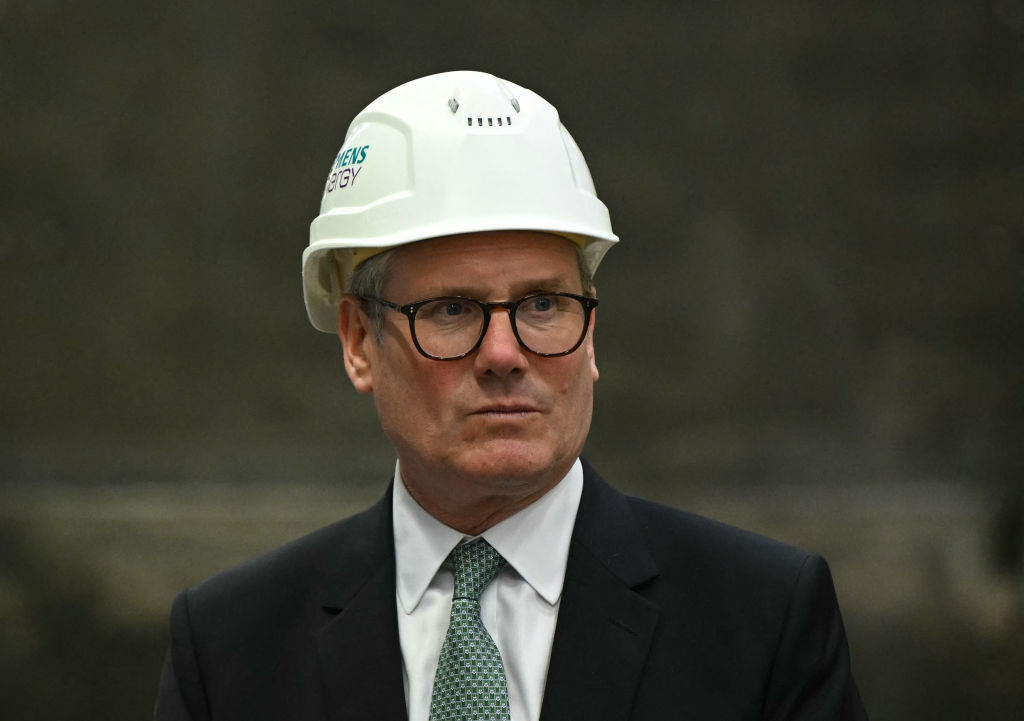A few years ago, when Labour was in opposition, I wrote a brief internal policy paper for the party as research for what was later published as “Labour’s Covenant.” In it, I argued that “Dark clouds gathering on the furthest edge of the world provide a dramatic backdrop to a Labour message that Britain requires a concerted period of national renewal, centred on resilience and state capacity.” Indeed, the perilous state of global affairs presented “a rare opportunity for Labour to use the new international situation as the justification for a progressive, interventionist domestic program to rebuild state capacity.”
The published covenant, Labour’s blueprint for government, indeed affirmed that “National reconstruction would involve reshoring key manufacturing capacity,” and that “instead of outsourcing the externalities of production, a national economy will manufacture more of the goods, like steel, that are currently produced in carbon-intensive ways abroad, at home, to higher environmental standards.” This is a good and sensible goal, for which I can claim little personal credit: it is simply common sense. Yet in power, Labour appears to be breaking its covenant with the British people.
Allowing Belfast’s historic and strategically vital Harland & Wolff shipyard to fall into administration for want of a £200m loan is a short-termist case of “Treasury Brain” redolent of the Tories at their worst. That the most likely buyer, Spain’s Navantia, is a state-owned enterprise highlights the British state’s allergy towards nationalising strategically vital industries, even as we stand teetering on the brink of great power conflict. The Labour government appears keen to escalate the Ukraine war, against American and European caution, towards a direct confrontation Britain is manifestly unprepared for.
It is all part of a worrying pattern: like the High Court’s quashing of the planned new Whitehaven mine for coking coal — vital for domestic steelmaking — the basic building blocks of national resilience in an increasingly uncertain and unstable world are being frittered away, in a manner entirely inconsistent with Labour’s manifesto commitments. As the International Relations theorist David Blagden observes, without Whitehaven we will be forced to “use Chinese coal instead, via imported steel,” which will “increase China’s power to coerce us, further weaken UK industry, and lead to higher net carbon emissions.” As with the collapse of Britain’s steel industry — and with it the ability to produce primary steel from scratch, a vital capability in building national resilience, particularly in wartime — the Labour government is overseeing a dangerous diminution of national industrial capacity, and a correspondingly growing dependence on foreign powers, including major strategic rivals.
It appears that Labour, while no less hawkish than the Conservatives in plunging Britain further into the centre of international quarrels than our closest allies are comfortable with, is simultaneously willing to see Britain become more dependent on the goodwill of foreign powers than ever before. Its climate policy, however well-intentioned, is proceeding backwards, launching headlong into a green energy transition whose capacity is far from certain without first building up the necessary resilience to ensure a stable energy supply. Worse, all of this is taking place in the most threatening international situation almost anyone living has ever known.
The central task of British governance is a simple one: making Britain a richer and more secure country than, after decades of failed policy, it currently is. Instead, Labour policy seems set on making Britain poorer, less resilient, and even more exposed to global risk. Like Harland & Wolff’s most famous product, we are rapidly approaching the iceberg, more clearly in view with every passing day: the time is running out for Starmer to steer us safely away to our promised destination.











Join the discussion
Join like minded readers that support our journalism by becoming a paid subscriber
To join the discussion in the comments, become a paid subscriber.
Join like minded readers that support our journalism, read unlimited articles and enjoy other subscriber-only benefits.
Subscribe